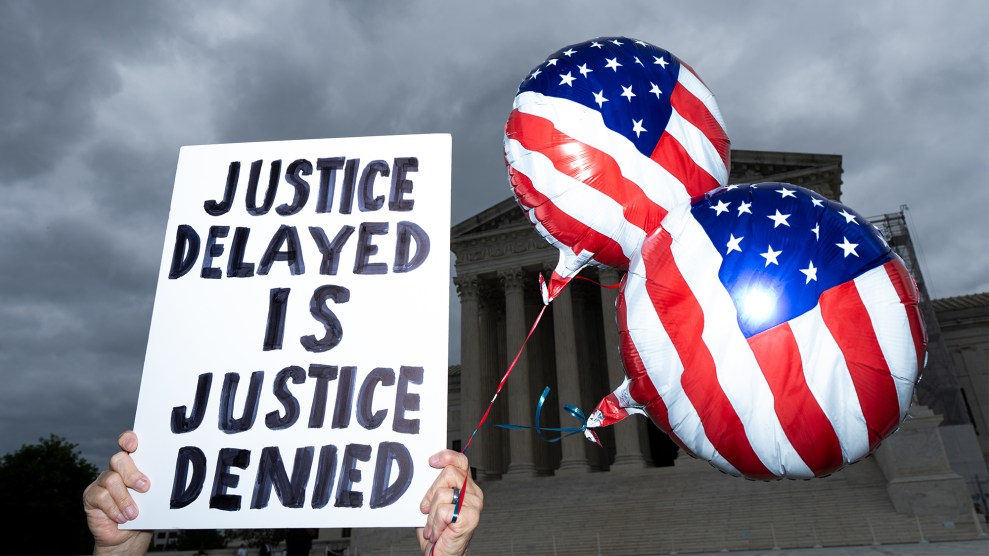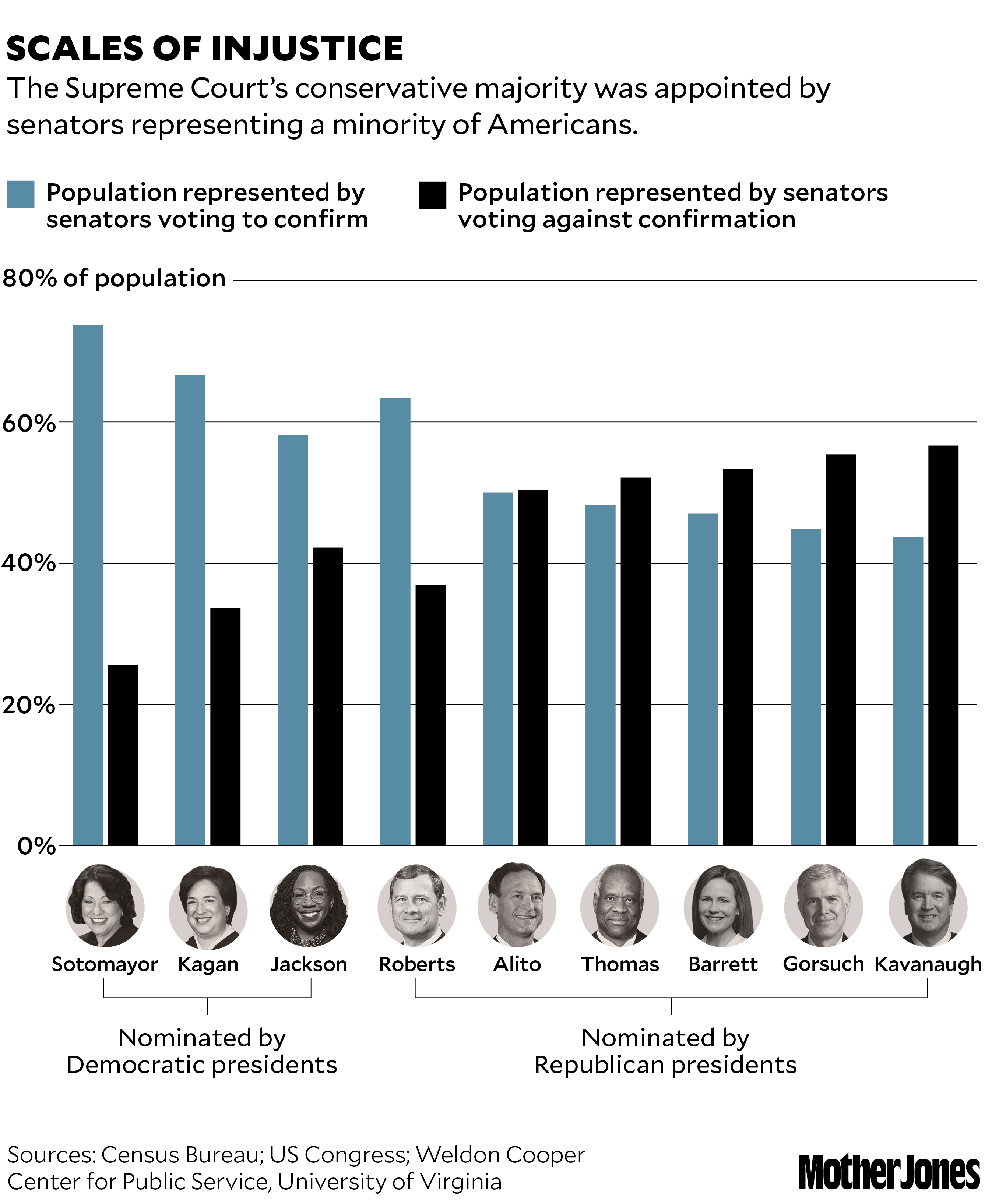
Bill Clark/CQ-Roll Call/Getty
President Joe Biden called for a series of major reforms to the Supreme Court on Monday that would counteract the unchecked power of its conservative supermajority. In an op-ed in the Washington Post, which was followed by a speech at the Lyndon B. Johnson Presidential Library that afternoon, Biden proposed an 18-year term limit for Supreme Court justices and a binding code of ethics, along with a constitutional amendment that would reverse the Supreme Court’s July 1 decision giving presidents “absolute immunity” from criminal prosecution for official acts in office.
“What is happening now is not normal, and it undermines the public’s confidence in the court’s decisions, including those impacting personal freedoms,” Biden wrote in the Post. “That’s why—in the face of increasing threats to America’s democratic institutions—I am calling for three bold reforms to restore trust and accountability to the court and our democracy.”
Under Biden’s plan, a president would appoint a Supreme Court justice every two years to an 18-year term, which would make it more difficult for one party or president to gain overwhelming control of the court, as is the case now. “The United States is the only major constitutional democracy that gives lifetime seats to its high court,” Biden wrote. He would also require justices “to disclose gifts, refrain from public political activity, and recuse themselves from cases in which they or their spouses have financial or other conflicts of interest.” Finally, the “No One Is Above the Law Amendment” proposed by the president “would make clear that there is no immunity for crimes a former president committed while in office.”
Vice President Kamala Harris, the presumptive Democratic nominee for president, said she supported these reforms. “There is a clear crisis of confidence facing the Supreme Court as its fairness has been called into question after numerous ethics scandals and decision after decision overturning long-standing precedent,” she said in a statement.
Pro-democracy groups praised Biden’s proposals—and said they were long overdue. “The White House’s endorsement is a crucial first step toward holding this MAGA Court in check and restoring Americans’ trust in the judiciary,” said a statement from a coalition of national advocacy groups that included Indivisible, MoveOn, and People for the American Way. Sarah Lipton-Lubet, president of Take Back the Court Action Fund, called the announcement “a massive sea change in the fight for court reform.”
As I’ve extensively reported for Mother Jones and in my new book Minority Rule, the Supreme Court’s conservative supermajority has been a key driver of the democratic crisis facing the country.

Five of six conservative justices on the Supreme Court were appointed by Republican presidents who initially lost the popular vote and were confirmed by senators elected by a minority of Americans. That conservative supermajority, in turn, has made the country less democratic in several shocking ways.
They have gutted the 1965 Voting Rights Act, upheld extreme partisan and racial gerrymandering, and flooded the political system with dark money. They have issued radical, precedent-shattering decisions that were directly at odds with public opinion on issues like abortion and guns. They have green-lit former president Donald Trump’s authoritarianism, insulating him from facing any legal challenge before the election—or possibly ever—for inciting the insurrection.
And the justices themselves have often acted like they too are above the law; Justices Clarence Thomas and Samuel Alito have accepted gifts and trips from top GOP donors who have spent millions to reshape the judiciary in a more conservative direction. Meanwhile, they have also refused to recuse themselves from major cases involving January 6 even though both their wives publicly supported the “Stop the Steal” movement. Ginni Thomas sent nearly 30 texts to White House Chief of Staff Mark Meadows urging him to overturn the 2020 election.
For all these reasons, advocates of Supreme Court reform have been urging Biden to embrace their cause for years. But he resisted calls to change the composition of the court while running for president in 2020. He then appointed a commission of scholars to study the issue after he was elected but did not act on the 294-page report they submitted in December 2021. He only made the issue a major priority now, during the final months of his administration.
His current proposals are likely too little, too late. Republicans in Congress will block any measures reforming the current court, and Biden’s constitutional amendment faces even steeper odds, requiring the support of two-thirds of Congress and three-quarters of states. No major Constitutional amendments have been adopted in the past fifty years.
Nonetheless, Biden’s call for Supreme Court reform could energize Democrats to go to the polls in November, much like Senate Majority Leader Mitch McConnell’s decision to block President Barack Obama from filling Antonin Scalia’s vacancy motivated Republicans to vote for Trump in 2016. It could also lay the groundwork for Vice President Harris to make Supreme Court reform a major legislative priority if she’s elected with a Democratic majority in Congress.
As Biden said at the LBJ Library Monday afternoon, “the court’s being used to weaponize an extreme and unchecked agenda.”
This post has been updated.












